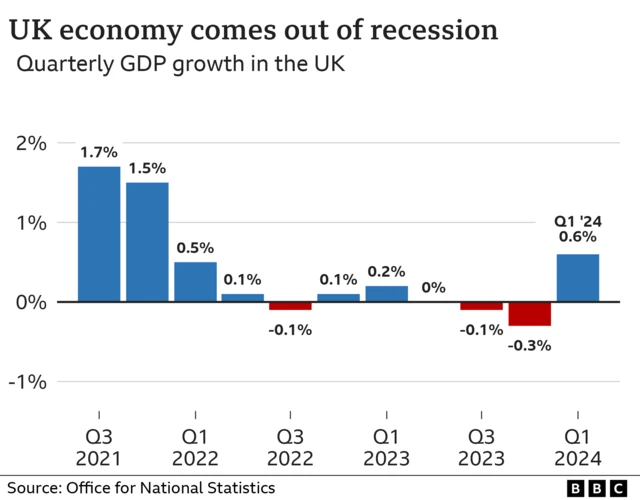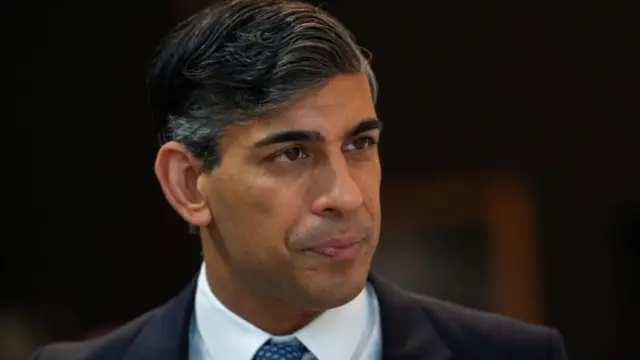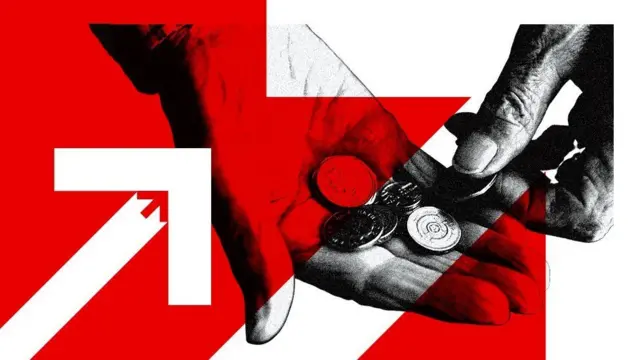Will people feel this economic turning point?published at 10:54 BST 10 May 2024
 Faisal Islam
Faisal Islam
Economics editor
There are many millions of households for whom normal growth will not feel good.
When I go around the country and ask people about recession ending, there is a mixture of resignation, laughter and annoyance.
The significant hike in the level of prices is what households notice the most, more than the rate of inflation or GDP. While per capita GDP is now also up for the first time in two years, it is still lower now than two years ago.
Will people be grateful for a turning point? Or will they focus on years of sluggish growth and declining living standards before that?
The economic hangover from the worst health crisis in a century and the worst energy crisis in a generation was always going to be tough, but the economy now appears to be returning to normal. If sustained, that is a marked improvement.
And with that, we're closing our live coverage. If you would like to continue reading about this story, check out our news story here.
This page was edited by Emily McGarvey and Aoife Walsh. It was written by Dearbail Jordan, Ali Abbas Ahmadi, Sophie Abdulla and James Harness. Thank you for joining us.





